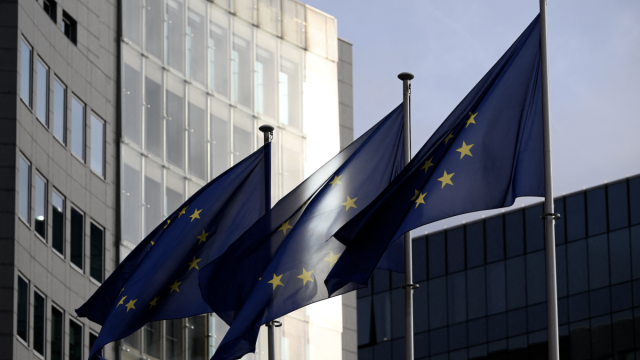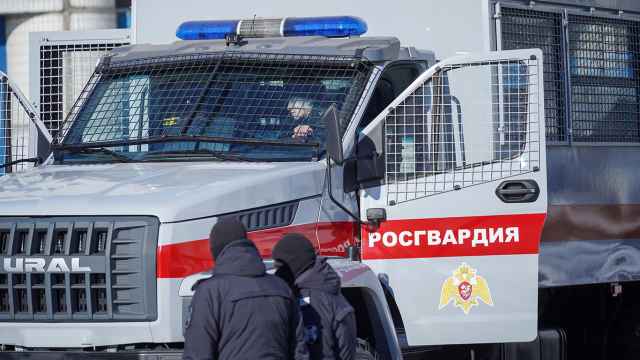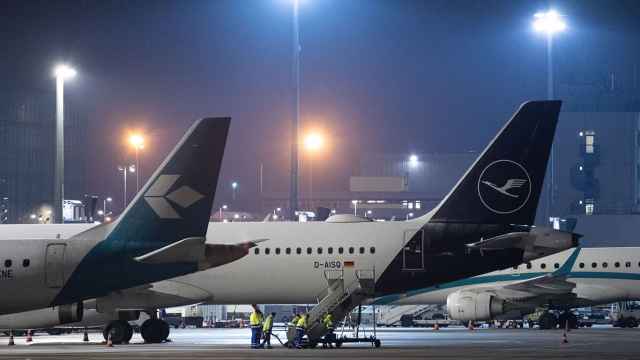There are many reasons why reforms are impossible to implement in Prime Minister Vladimir Putin’s Russia, but one is very simple: In a country where the leader is extremely ineffective, an effective senior official is considered a rebel or revolutionary.
Consider army reforms. Defense Minister Anatoly Serdyukov is a very competent administrator, and in any other country he would have completed the reform process long ago. But you need supporters to push through reforms. That is the nature of the process.
At the same time, however, successful reforms give rise to a huge faction of opponents comprised of people disenfranchised in one way or another by the changes.
To simplify the task of reforming the army, Serdyukov only has to create a large group of officers who would benefit from the reforms. He should not rely on support from such people as Lieutenant General Vladimir Shamanov, the paratrooper commander who sent a group of commandos to defend his son-in-law’s business in a shady commercial dispute.
Shamanov has nothing to gain or lose from Serdyukov’s reforms and does not feel himself beholden to Serdyukov in any way. If anything, Shamanov believes that Serdyukov owes him.
To build up support, Serdyukov should promote 1,000 worthy and capable lieutenant colonels to the rank of general. Those men would do anything for him. Serdyukov has not considered this option because he understands that any attempt to create a loyal officer corps with much to gain from army reforms would automatically be perceived as preparation for a coup d’etat.
Consider President Dmitry Medvedev’s call for modernization. Let’s assume that he does build his oasis of innovation and modernization in Skolkovo. The result would be the same: A group of people would emerge who have a vested interest in seeing modernization flourish and in ensuring that Medvedev, as the “main modernizer,” holds onto power.
In other words, modernization would undermine Putin’s authority.
The same is true in the North Caucasus. It is no easy task to establish order in Ingushetia and Dagestan, but it is possible under the current circumstances. What is needed is a strong local leader surrounded by people who owe everything to him and who are prepared to give their lives for him. After all, if the insurgents battling federal forces behave as if life no longer means anything to them, wouldn’t it make sense to have such people supporting the local government?
The Kremlin does everything to prevent strong leaders from having too much power in those republics. Moscow likes to appoint notoriously weak leaders such as President Magomedsalam Magomedov in Dagestan. Even when it appoints strong and scrupulous individuals, such as Ingush President Yunus-Bek Yevkurov, the Kremlin does everything to undermine his authority.
Of course, Chechen President Ramzan Kadyrov is an exception to this rule. But strangely enough, this exception actually proves the rule. Kadyrov is surrounded by people who owe him everything and who are prepared to die for him if necessary. And can Moscow do anything to challenge that type of authority?
Yulia Latynina hosts a radio talk show on Ekho Moskvy radio.
A Message from The Moscow Times:
Dear readers,
We are facing unprecedented challenges. Russia's Prosecutor General's Office has designated The Moscow Times as an "undesirable" organization, criminalizing our work and putting our staff at risk of prosecution. This follows our earlier unjust labeling as a "foreign agent."
These actions are direct attempts to silence independent journalism in Russia. The authorities claim our work "discredits the decisions of the Russian leadership." We see things differently: we strive to provide accurate, unbiased reporting on Russia.
We, the journalists of The Moscow Times, refuse to be silenced. But to continue our work, we need your help.
Your support, no matter how small, makes a world of difference. If you can, please support us monthly starting from just $2. It's quick to set up, and every contribution makes a significant impact.
By supporting The Moscow Times, you're defending open, independent journalism in the face of repression. Thank you for standing with us.
Remind me later.





